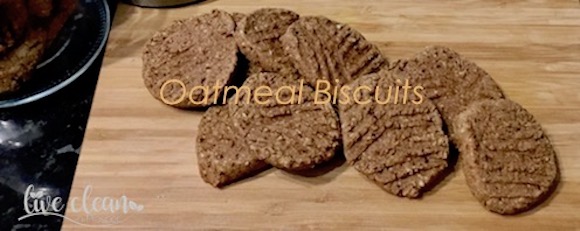Today I am sharing a recipe for Oatmeal biscuits. After my last post on Oats, my mother shared her biscuit recipe with me. I made some very minor changes to it and have shared it with you here.
I made the recipe using quinoa flour for a wheat free biscuit, and I added nutmeg.
The rapadura sugar gives the biscuits a richer colour without being overly sweet. The result is a mildly sweet biscuit that pairs well with a cup of tea.
Oatmeal Biscuits
Makes approx. 20 small biscuits
Ingredients
220g Spelt flour (I used Quinoa)
60g rolled oats
1 ½ tspn ground cinnamon
½ tspn ground nutmeg
1 tspn salt
1 tspn baking powder
60g Rapadura sugar
60g butter (melted)
20g Maple syrup
1/3 cup milk of your choice
Method
Process oats to fine breadcrumb like consistency
Add flour, salt, baking powder, spices and sugar and pulse to combine, add butter, syrup and process till combined.
Add milk one tablespoon at a time until a smooth dough forms and starts to ball up and feel slightly tacky . (the amount of liquid required can vary depending on the type of flour you use)
I put all the dough onto a large piece of cling wrap and rolled it into a sausage shape. Then using a sharp knife I carefully cut off slices to create the biscuits. I then used a fork dipped in water to press the biscuits into shape.
Bake in preheated 175 C oven for 15 min
If you like a crisp biscuit –
Let them cool completely, then bake a second time for 10 mins at 170 c.
I hope you enjoy these biscuits.
Till the next post,
Live clean n Prosper


